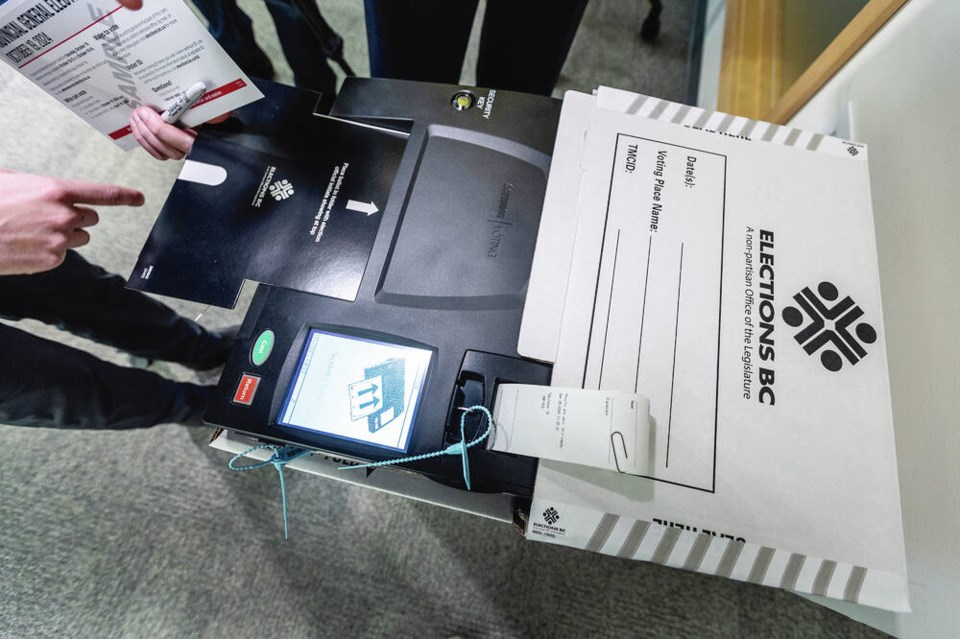As the provincial election nears, keep this in mind: Every vote counts.
You might question that thinking when you see that a candidate has won a riding with a 1,000-vote margin over their nearest opponent. In a case like that, you might think that it really didn’t matter who you voted for, or if you voted at all.
But here’s the rub: In many cases, you can’t predict an outcome like that. You don’t know when a single vote can make a big difference.
The best example is Frank Calder, who represented Atlin in Bill Bennett’s Social Credit government.
Calder was confident that he would be re-elected in the 1979 election — so confident, in fact, that he and his wife Tamaki didn’t bother to vote.
Calder lost his seat to Al Passarell of the New Democratic Party by a single vote. Passarell became known as “Landslide Al” as a result, and Calder’s political career was over.
Consider also the 2001 provincial election, which Gordon Campbell’s B.C. Liberals won in an unprecedented sweep, reducing the NDP to just two seats.
Victoria-Beacon Hill has been a safe NDP seat, but it went Liberal by a margin of just 35 votes. If three dozen more NDP supporters had voted, it would have remained with the NDP.
Victoria-Hillside was another safe NDP seat that went to the Liberals, with a margin of 82 votes. If four dozen people had voted NDP rather than Liberal, that seat would also have remained with the NDP.
The two Victoria seats would have given the New Democrats four seats. That would have given the NDP official party status, and with that there would have been a boost in staffing and funding. (It also would have prevented the petty squabble between the Liberals and the NDP over that status.)
A more recent example shows how a handful of votes in one riding can change a government.
In 2017, Ronna-Rae Leonard of the New Democratic Party had a nine-vote lead over Jim Benninger of the B.C. Liberals on election night. After absentee ballots were counted and a recount was completed, Leonard’s advantage was 189 votes.
If 100 people had voted for the Liberals instead of the NDP, Benninger would have won the seat. If he had been able to get 200 more Liberal supporters to vote, Benninger would have won the seat.
In 2017, that one seat could have changed history.
Christy Clark’s Liberals won 43 seats, but John Horgan’s NDP won 41 and Andrew Weaver’s Greens won three. The two opposition parties worked together to push the Liberals out of office, ending 16 years in power.
A Benninger win would have given the Liberals 44 seats and the NDP 40 seats. That would have been enough to keep Clark in the premier’s office.
Along with the selection of MLAs, your vote is worth money to your political party of choice.
The province gives a subsidy to political parties based on the number of votes cast in the previous provincial election. Parties get $1.81 per vote, and in 2024, those subsidies add up to $3.4 million.
The subsidy system gives a great advantage to the established parties, because new ones — or parties that are much stronger now than in the last election — will not get the same level of funding.
That’s why the NDP received $1.6 million this year, and the Conservatives $65,000.
Voting for your preferred party — even if the result seems predictable — can make a big difference in the next election.
All things considered, voting is quick and easy. It’s your chance to get involved. It’s your chance to make a difference.
The high turnout to the advance polls indicates that many British Columbians see the value in casting ballots.
Please join them, and vote.
>>> To comment on this article, write a letter to the editor: [email protected]




